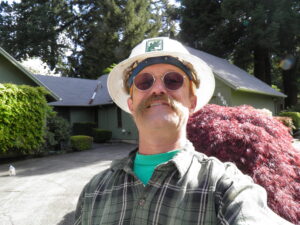TERMS & DEFINITIONS
COMMON ARBORIST TERMS & DEFINITIONS
VISUAL TREE ASSESSMENT
Method of assessing the structural integrity of trees using external symptoms of mechanical stress (such as bulges, reactive growth, etc. and defects (cracks, cavities, conks, etc.). There are three levels of assessment. Quick walk or drive by is level 1. Level 2 is walk around whole tree and assess tree from tree base to tree crown assessing health and risk. If needed hammer / sound testing is done to hear if hollowness in tree is observed. A probe may also be used to check depth of cavities or hollows in the tree. Level 3 is all of the Level 2 plus the use of intrusive testing such as drills, resistograph drilling or other methods to test the internal integrity of the tree.
TREE RISK ASSESSMENT
A systematic process used to identify, analyze, and evaluate tree risk.
TREE FORENSICS
The inspection of a tree or tree part due to the tree or tree part caused damage or harm to people or property. Assessment forensics of the tree or part to aid in determining why that tree or tree part failed. Have worked expert witness cases due to injury or death caused by tree or tree parts, if the tree failed due to disease or storm events, or if chemicals were used to damage or kill the tree.
TREE PROTECTION PLAN
Development of a plan to save one to many trees from activity that is near the critical root zones of the tree(s). Write up of Guidelines to Tree Protection and Construction Sequences. Tree Inventory is part of the tree protection plan which details the species, size and health and risk potentials of the trees in development.
ARBORICULTURE
The planting, care, and scientific cultivation of trees and woody vegetation in a nonforest context, usually in relation to orchards or for their ornamental or aesthetic values.
ARBORIST
A professional in the practice of arboriculture, possessing the technical skills to care for individual trees and related woody plants in the residential, commercial, and public landscapes. The International Society of Arboriculture certifies arborists and certified arborists must do continuing education to keep up their credentials.
URBAN FORESTRY
The art, science, and technology of managing urban forest ecosystems for the physiological, sociological, economic, and aesthetic benefits that trees provide society.
BIOGRAPHY
David D. Hunter is a Registered Consulting Arborist with ASCA, USFS Trained Tree Risk Assessor, ISA Certified Arborist and Tree Risk Assessor Qualified, Professional Plant Appraiser and Professional Forester. Providing both expert witness and consulting services. David D Hunter has been called upon to testify in court and has helped clients reach resolution prior to trail.
His services include: Expert Witness in Arboriculture and Forestry, professional plant appraisals of landscapes, trees and timber trespass, tree forensics as to why a tree or tree part failed causing injury or death, tree health and hazard/ risk assessments and insurance claims relating to damage done to tree, or people/ property damaged by trees. David D Hunter has over 40 years of experience from working in forestry, wildland fire and the arboriculture field. He has been a consultant and expert witness on these fields for over 25 years. David D Hunter services the western United States.

DAVID D. HUNTER IS AVAILABLE NATIONWIDE AS A CONSULTING ARBORIST / EXPERT WITNESS.